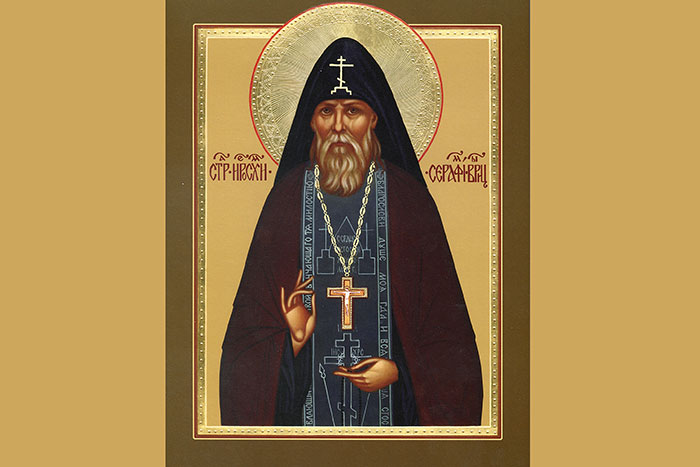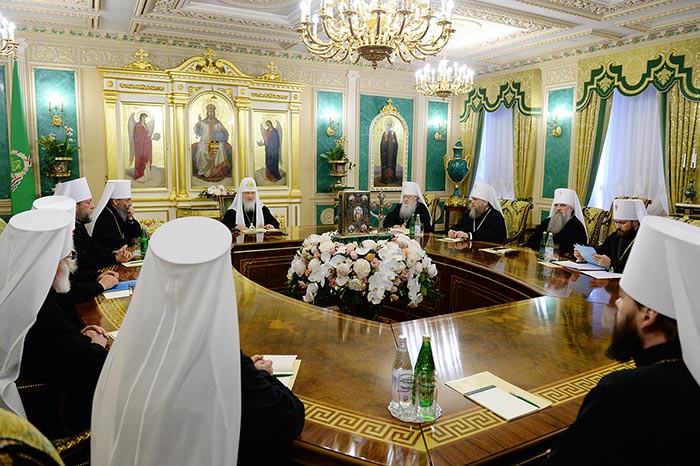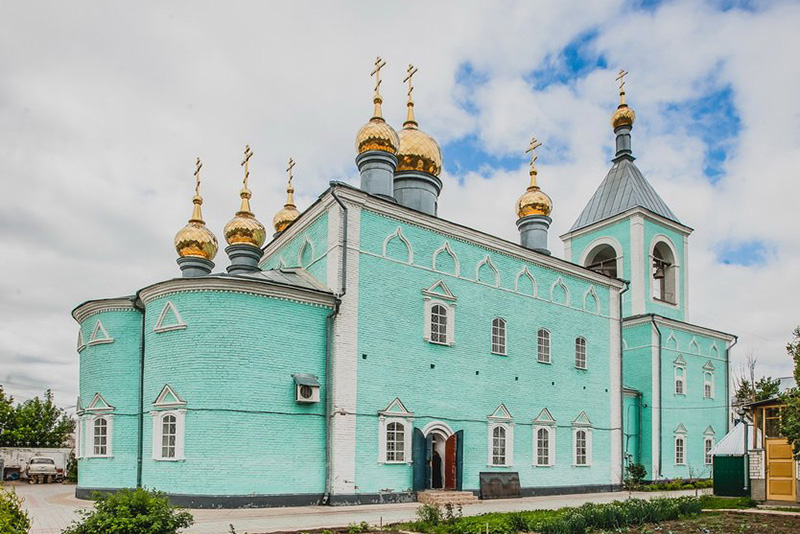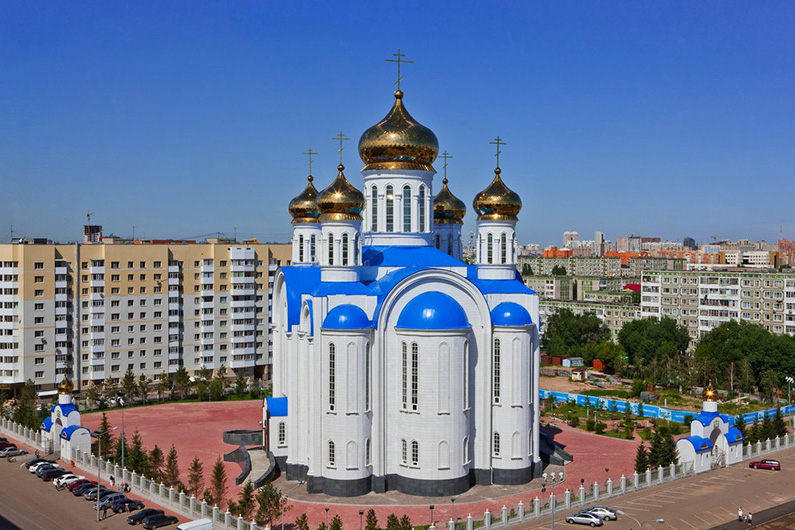
Metropolitan Alexander celebrated the Liturgy of the Presanctified Gifts in the church of the Representative Office of the Metropolitan District in Moscow
- 03.04.2024, 14:07
- Новости на английском языке

April 3, 2024 – Wednesday of the 3rd week of Lent; day of remembrance of St. Seraphim of Vyritsky and St. Pachomius of Nerekhta.
Metropolitan Alexander of Astana and Kazakhstan celebrated the Liturgy of the Presanctified Gifts in the church in the name of the holy martyrs Faith, Nadezhda, Love and Sophia at the Patriarchal Metochion of Moscow - the Representation of the Metropolitan District of the Russian Orthodox Church in the Republic of Kazakhstan.
The Primate of the Orthodox Church of Kazakhstan was assisted by: assistant to the Head of the Metropolitan District, Hieromonk Anthony (Drobyazko) and clergy of the metochion.
The chants were performed by the parish choir under the direction of Anna Rozhnova.
Praying during the service were employees of the Representation, benefactors of the Patriarchal Metochion and parishioners of the church.
The Hierarch offered prayers for the increase of love and the eradication of all hatred and malice.
The Liturgy ended with the glorification of St. Seraphim of Vyritsky and Pachomius of Nerekhta, after which the Head of the Metropolitan District addressed the worshipers with a word of teaching.
“In the history of the Russian Orthodox Church of the twentieth century, a special place is occupied by the life of the holy Venerable Seraphim of Vyritsky, filled with exploits. Being a famous St. Petersburg merchant, Vasily Nikolaevich Muravyov, that was the name of the Monk Seraphim Vyritsky in the world, commits an act inexplicable to the ordinary human mind. Having responded with all your soul to the Gospel call of the Savior: “If you want to be perfect, go, sell your possessions and give to the poor, and you will have treasure in heaven. Then come, follow me” (Matthew 19:21), - he distributes his property to monasteries and the needy, and takes monastic vows with the name Seraphim - in honor of the Venerable Seraphim of Sarov. This act required from him the highest courage and unshakable faith, since the October Revolution of 1917 had already taken place and the terrible years of persecution of Holy Orthodoxy had begun. Having accepted monasticism in the Alexander Nevsky Lavra, Hieroschemamonk Seraphim becomes her confessor. From 1930, with the onset of a serious illness, until his death in 1949, he lived in Vyritsa, near Leningrad. The time of the senile service of the Vyritsa ascetic fell on the period of bloody atheism, the Great Patriotic War and post-war devastation. All these years, Elder Seraphim testified to Christ with his life, leading a huge number of souls to salvation. For courage and patience, for love for God and people, the Lord gave Father Seraphim great spiritual wisdom, the power to heal mental and physical infirmities, and the word of true prophecy. Both during his life and after his repose in the Heavenly abodes, the Monk Seraphim helped and continues to help everyone who turned to him. After the sorrowful years of persecution of the faith and the Church of Christ, we have the opportunity to partake of the spiritual wealth of his holiness - this truly inexhaustible source of living “water welling up to eternal life” (John 4:14). Let the experience of active piety, preserved in the life of the Vyritsa elder, in the people’s memory of his ascetic life and monastic labors, encourage us to purify our souls and hearts, to follow the good example of the Orthodox saints, who fulfilled the commandment of love for God and neighbor.” From the sermon of Metropolitan Alexander.
Life of St. Pachomius of Nerekhta
The Monk Pachomius of Nerekhta was born in Vladimir at the beginning of the 14th century into the family of a priest.
He took monastic tonsure in the Vladimir Nativity of the Mother of God Monastery, and then by Saint Alexy, Metropolitan of Moscow, he was installed as abbot of the Constantine-Elenin monastery established by the Moscow saint near Vladimir.
Having established monastic life in the new monastery, Saint Pachomius left it. In his quest for a desert life, he settled on the banks of the Solonitsa River at the confluence of the Gridevka River, near the village of Nerekhta, in a place anciently called Sypanovo. With the help of the residents of Nerekhta, the monk built a wooden church here in the name of the Life-Giving Trinity; fraternal cells were built for the companions who gathered to visit the saint of God, and a hotel was built for the pilgrims, in which Abbot Pachomius himself diligently served the pilgrims. The monk painted an icon of the Most Holy Trinity for the new church. Under the hill on which the monastery was located, through the prayers of the Syanov elder, a holy spring appeared.
On March 21, 1384, the Monk Pachomius peacefully departed to the Lord and was buried in the Trinity Church he had erected.
Three centuries later, in 1675, the Russian Orthodox Church glorified the Nerekhta elder as a saint. Nowadays the holy relics of the Monk Pachomius rest in secret in the Trinity-Sypanov Pachomiev-Nerekhta Convent, revived in 1993 through the labors of Metropolitan Alexander, when he was Archbishop of Kostroma and Galich.





















